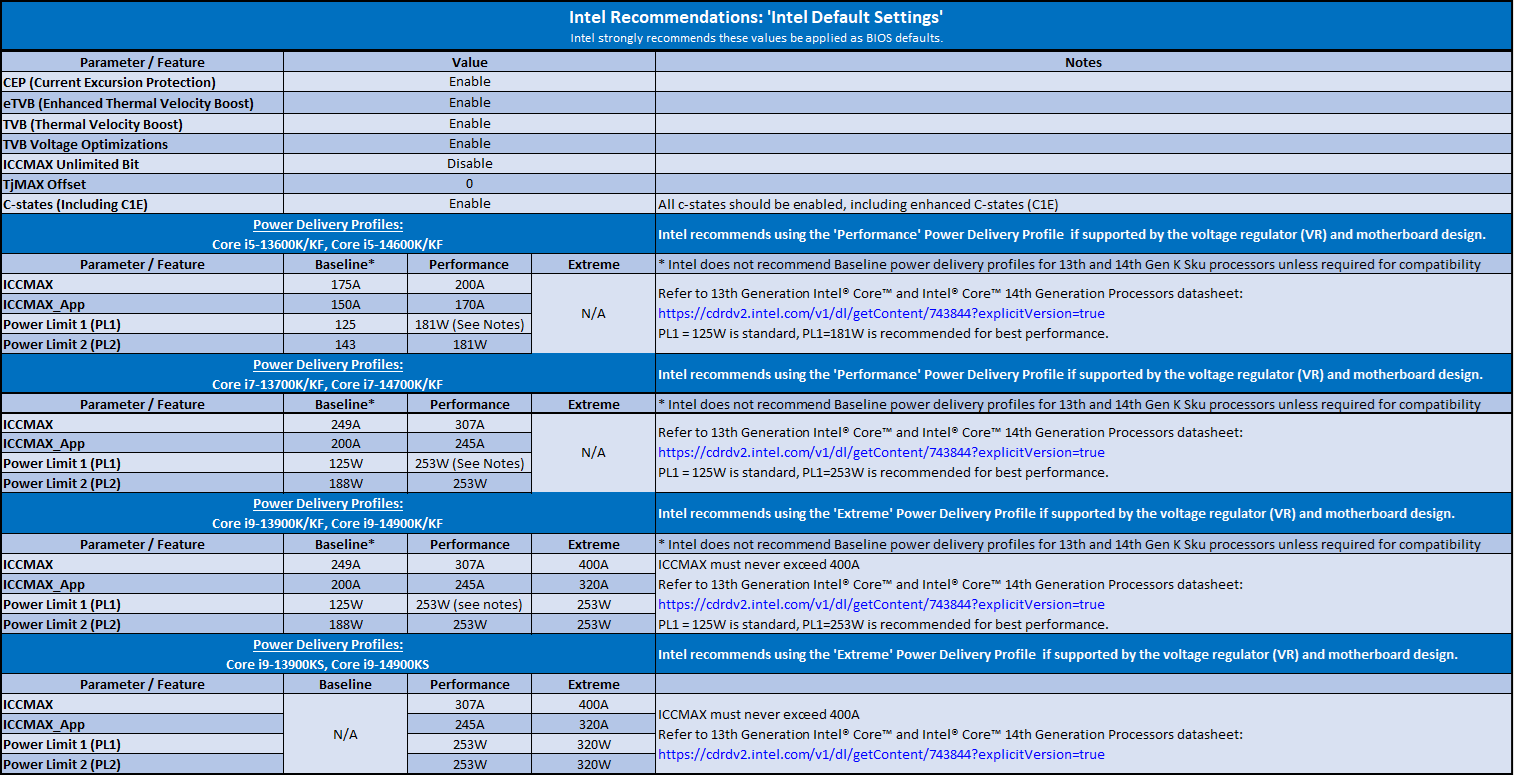
Intel continues to investigate reports of instability on its 13th and 14th Generation desktop CPUs (K/KF/KS). While it has yet to identify the root cause of the problem, Intel has offered guidance on helping prevent the instability. Intel has also uncovered one power-related bug, and says that it’s working with vendors to distribute a patch for it.
Along with its motherboard partners, Intel has been diving deep into reports of its 13th Raptor Lake and 14th Generation Raptor Lake Refresh processors suffering from instability under load. Previously, reports surfaced that Intel had uncovered what was causing the stability issues. Several publications reported that Intel would soon send a firmware patch to resolve the issue. Still, Intel told Tom’s Hardware that it had “not confirmed root cause and is continuing, with its partners, to investigate user reports regarding instability issues on unlocked Intel Core 13th and 14th generation (K/KF/KS) desktop processors.”
One contributing factor, it says, is elevated voltage input to the processor allowing the CPU to run at turbo frequencies - even when it’s too hot to do so safely.
Intel says these conditions occur because of previously applied BIOS settings, but its analysis did reveal one bug. The bug is within its Enhanced Thermal Velocity Boost (eTVB) algorithm and can impact operating conditions for the affected CPUs. This algorithm should automatically increase the CPU clock frequency, but only when operating below a certain temperature.
To address the eTVB bug, Intel has released a patch to motherboard manufacturers. Patches should roll out in the form of BIOS updates before July 19, 2024. In the meantime, Intel has provided a table of recommended power delivery settings for its 13th and 14th Gen desktop CPUs.

This isn’t the first time Intel has suggested BIOS settings tweaks to help stave off instability. Asus released a new BIOS in April to follow Intel’s guidelines on power delivery. Then in May, Intel reportedly insisted motherboard partners implement its “Intel Default (Baseline) Profile” to establish correct power settings for the 13th and 14th Gen CPUs.
Intel also warns that users who still want to overclock or use higher power delivery settings than it recommends can “do so at their own risk as overclocking may void warranty or affect system health.”







